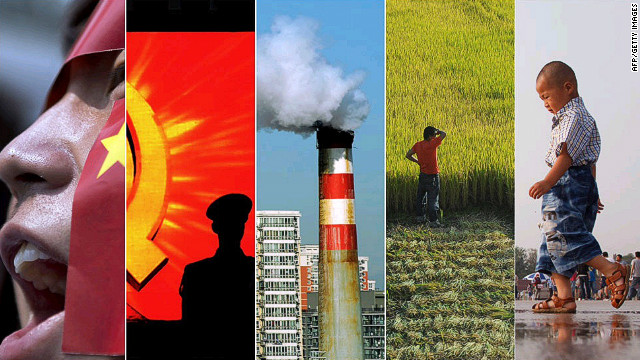
Chinese economy experienced astonishing growth in the last few decades that catapulted the country to become the world's second largest economy.
Since the introduction of the economic reforms in 1978, China has become the world’s manufacturing hub, where the secondary sector represented the largest share of GDP. However, in recent years, China’s modernization propelled the tertiary sector and, in 2013, it became the largest category of GDP with a share of 46.1%, while the secondary sector still accounted for a sizeable 45.0% of the country’s total output.
 Agriculture is a vital industry in China, employing over 300 million farmers. Chinaranks first in worldwide farm output, primarily producing rice, wheat, potatoes, tomato, sorghum, peanuts, tea, millet, barley, cotton, oilseed and soybeans.
Agriculture is a vital industry in China, employing over 300 million farmers. Chinaranks first in worldwide farm output, primarily producing rice, wheat, potatoes, tomato, sorghum, peanuts, tea, millet, barley, cotton, oilseed and soybeans.China is certainly a major net importer with an increasingly influential role in world markets but is also a sizeable minerals producer in its own right—as would be expected of a country of such immense landmass—and has a striking diversity of resources.

China's machinery manufacturing industry can provide complete sets of large advanced equipment, including large gas turbines, large pump storage groups, and nuclear power sets, ultra-high voltage direct-current transmission and transformer equipment, complete sets of large metallurgical, fertilizer and petro-chemical equipment, urban light rail transport equipment, and new papermaking and textile machinery. Machinery and transportation equipment have been the mainstay products of Chinese exports, as China's leading export sector for successive 11 years from 1996 to 2006.
China’s service sector is still small, in percentage terms, compared with those of Britain and the United States, where a vast array of services makes up almost 80 percent of the economy. But the sector has about doubled its share of the Chinese economy since 1980, according to the World Bank.“Manufacturing will remain a key pillar of the economy, but at the margin, future growth will come from the services industry.
China's economy is certainly on the rise even though it faces a number of challenges going forward including an overall slowdown in economic growth, long-term inflation, economic bubbles that have formed that the government must control before they burst, adjusting to the industry shift to the tertiary sector that's occuring and a resistance to reform which has been a staple of the dominant Communist Party.


No comments:
Post a Comment